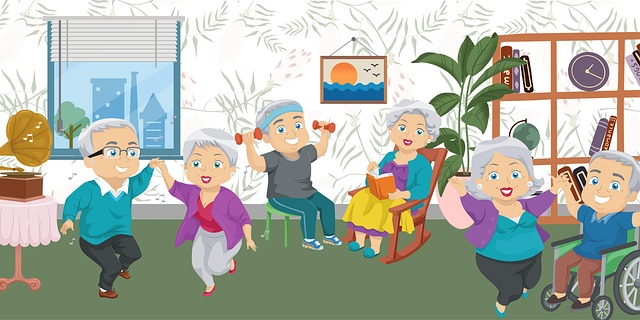Houston's elderly sexual assault law firm highlights the need for specialized rehabilitation programs to address unique challenges faced by offenders, including age-related cognitive changes and social isolation. Despite successes, programs face hurdles due to historical power dynamics and societal factors. With tailored approaches and collaboration, Houston aims to reduce recidivism and create safer environments for vulnerable elders through advanced technologies and community outreach.
In Houston, the effectiveness of rehabilitation programs for elderly sexual offenders is a critical issue gaining attention from both legal and psychological perspectives. This article delves into the unique challenges faced by Houston’s elderly sexual offender population and explores the balance between theory and practice in current rehabilitation efforts. We examine success stories, discuss the role of an elderly sexual assault law firm, and look ahead to innovative approaches for the future of this complex field.
Understanding Houston's Elderly Sexual Offender Population

Houston, a vibrant metropolis, hosts a diverse population, including a unique segment of elderly individuals with a history of sexual offenses. According to recent statistics, the city has seen an increasing trend in cases involving elderly sexual assault, raising concerns among community members and law enforcement alike. An elderly sexual assault law firm in Houston has noted that many of these offenders were once respected members of the community, whose actions later in life reflect a complex interplay of mental health issues, loneliness, and societal factors.
Understanding this demographic is crucial to developing effective rehabilitation programs. These individuals often require specialized care due to age-related cognitive changes and co-occurring psychological conditions. A comprehensive approach that addresses both the criminal behavior and underlying causes can lead to better outcomes. By implementing tailored interventions, Houston’s rehabilitation programs can aim to reduce recidivism rates and foster a safer environment for all citizens, especially vulnerable groups like the elderly.
Rehabilitation Programs: Theory vs. Practice in Houston

Rehabilitation programs aimed at elderly sexual offenders in Houston, while theoretically well-intentioned, often face significant challenges in practice. These programs typically focus on therapy, education, and community reintegration to prevent recidivism. However, implementing such programs for the elderly population poses unique difficulties due to cognitive changes, social isolation, and a history of power dynamics that can complicate therapeutic processes.
An elderly sexual assault law firm in Houston might highlight these disparities as they navigate the complexities of defending clients who have participated in rehabilitation without achieving substantial improvements. While these programs strive to empower individuals and break cycles of abuse, successful execution requires tailored approaches considering the distinct needs and barriers faced by elderly offenders, ensuring that theory translates into meaningful and effective practice.
Success Stories and The Future of Elderly Sex Offender Rehab

Despite the sensitive nature of the topic, there are success stories to be shared from Houston’s rehabilitation programs for elderly sexual offenders. Many participants have shown significant progress in managing their urges and changing their behaviors, often with the support of specialized therapy, counseling, and peer groups. These positive outcomes offer hope not only for the individuals involved but also for the community at large, suggesting that effective intervention can break the cycle of recidivism.
Looking ahead, the future of elderly sex offender rehab in Houston appears promising. Continued research and program development focus on personalized treatment plans tailored to each individual’s unique needs and challenges. Collaboration between rehabilitation centers, law enforcement agencies, and an elderly sexual assault law firm Houston can help improve identification, intervention, and support for at-risk individuals. By leveraging technological advancements and community outreach, these programs aim to enhance their reach and impact, ultimately contributing to safer and more inclusive communities for all Houstonians.






